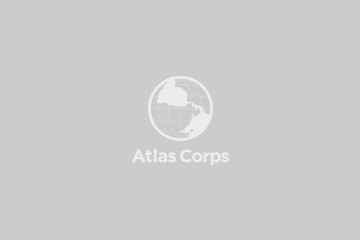Believe you can and you’re halfway there. — Theodore Roosevelt
Over the last couple of years, I have had opportunities to be an interviewer at my organizations. I also had several interviews when I applied for jobs, scholarships, and fellowship. I think both roles, as interviewer and interviewee are challenging in different ways. Interviewing someone can be fun… except when they do not give you interesting answers or maybe do not answer your question at all!
I understand it is a stressful situation and a nerve-wracking moment, sometimes it can be emotional as well. No one likes to talk to strangers about ourselves, our achievements, past jobs and study while trying to behave our best and convincing the interviewers to choose us over other candidates. Cultures have a big influence too, especially for women. I notice women often do not like to talk about their achievements, downplay their contribution and not take the credit for their success. This is the time to talk that talk!
I know that sitting in a hot seat is terrifying, therefore to make life easier for both interviewer and interviewee, I want to share some tips to make an interview successful.
- Do research
The main reason for conducting an interview is to see if someone is a good fit for the position and the organization. By finding out about organization vision, mission, values, work, recent news and events, the key players and success stories, you will know if there is a common interest and you are a good fit for the organization. You can check the organization website, LinkedIn, and Glassdoor. We do not want to do something we do not like, do we?
- Relevant answer
It is easy to get lost in answering a question. One common problem that I notice is people want to show how great they are by mentioning all their skills (communication, problem-solving, presentation, you name it..) but they fail to give examples and show how they use those skills. Storytelling is important, but choose relevant (if possible, the latest) examples that best describe your strength to answer the question. For example, when the interviewer asks “tell me about your leadership experience” then you can mention a time when you lead others, not how you complete your work just by yourself.
- Be concise
To be honest, it is hard to understand your point if you talk in a circle and give a very long answer. Try to craft your answer in a SWOT analysis. It will show you have self-awareness, have plans and well-prepared. You can explain how your strengths are matched with the organization’s demand, explain how your weakness can turn into strength (please avoid the “I work too hard” answer as your weakness. How authentic it is!), identify potential opportunities while recognizing challenges. I usually prepare several of my success stories using SWOT and use it as an example to demonstrate my strength. I suggest using a different example for a different question, if you do not have enough examples, you can tell the answer differently and highlight different skill.
- Use data
Data and facts give the interviewer a better picture of your accomplishment. For example, you can mention that you save 30% of the annual budget by doing different forecasting techniques, you boost $20,000 profit by increasing 10% of new customers every month. It helps the interviewer to understand your situation and give you a better score.
- Be honest
I can’t stress this enough! Do not tell lie. Do not make something up. It will cause trouble when the organization asks you to show your skills as you claimed when you know nothing about it. Most of the time, there is a written test where the organization can look at your test score and easily detect your lie.
- Ethical
Be punctual, polite, show respect, smile, make good eye contact with your interviewer, be enthusiastic. The purpose of an interview is not only to find the most capable person but also to choose someone who can be a part of an organization. No one wants to interact with someone unlikeable on a daily basis. When you apply for a scholarship or fellowship, you would want to show why you deserve it and how you will be a great representative of that organization. Most of the scholarships and fellowships organization would like someone who can be a leader and give a positive contribution to the community. Therefore, being ethical will help to show your leadership character.
- Ask questions
At the end of an interview, use the opportunity to ask your questions. This shows you are interested in joining the organization and pay attention. You might have some questions about the organization that is not available on their website or you can ask about the next step of their hiring process. However, you do not want to ask too many questions (back to “Do your research” point).
- Be thankful
A thank you note is a brilliant way to appreciate your interviewer time and to remind them about you (and your awesome skills). You can slightly mention your experiences and how you are the best candidate for them. Make it personal, mention something that you learned during the interview or something unique about your interviewer or organization. Other candidates would probably write a thank you note, and you want to write something memorable that stands out from other notes.
Well, now go knock on that door of opportunity! Or even better, build your own door!



